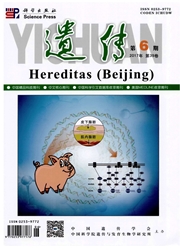

 中文摘要:
中文摘要:
概述了蛋白质品质管理中涉及的分子伴侣、激发未折叠蛋白反应(unfoldedproteinresponse,uPR)和内质网相关性蛋白质降解途径(ER—associated degradation,ERAD)等的研究进展,并探讨了该领域存在的问题以及发展前景。指出蛋白质的生命过程经历生成、折叠、组装和降解,每个过程都有严格控制。内质网中,各种蛋白质合成、折叠并经修饰形成具有一定构象的功能性蛋白。其在内质网折叠受阻碍时,未折叠的蛋白聚集,激发UPR,使一系列分子伴侣和蛋白质折叠所需修饰酶类表达上调,帮助其完成折叠和装配。如果这些蛋白仍不能正确折叠,则进入ERAD被降解。
 英文摘要:
英文摘要:
The research progress in molecular chaperones, unfolded protein response (UPR) and ER-associated degradation (ERAD) involved in the protein quality control was summarized in this paper, and then the existing problems and the future devel- opment prospect were also discussed. It was pointed out that the life process of protein experienced four stages including synthesizing, folding, assembling and degradation, while each stage required strict quality control. In endoplasmic reticulum (ER), a variety of proteins had been synthesized, folded and modified to form func- tional proteins with certain conformation. When the folding was blocked in ER, the unfolded proteins would aggregate and induce the UPR, which up-regulated the level of modification enzymes folded by a series of molecular chaperones and proteins to help them accomplish folding and assembling. If these proteins were still folded incorrectly, they would enter into ERAD for being degraded.
 同期刊论文项目
同期刊论文项目
 同项目期刊论文
同项目期刊论文
 期刊信息
期刊信息
